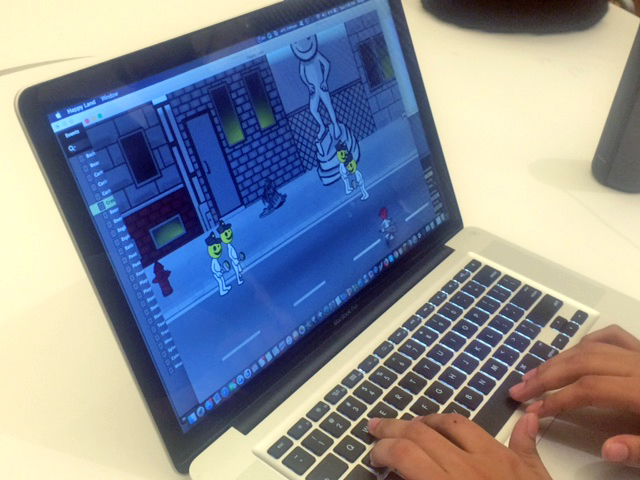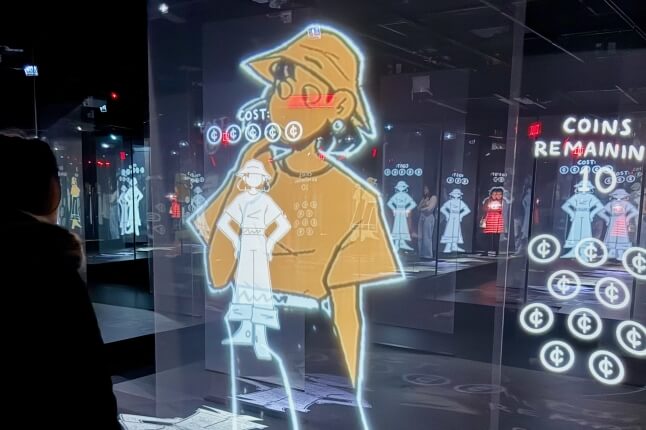News
The game developers gather around to watch one prototype game being played. (Photo by Alana Davitt/SEAS Communications.)
Creative expression and technical expertise are intertwined for students in the Harvard Gamedevs. The up-and-coming student organization is creating a welcoming environment for video game lovers and developers with all levels of passion and expertise.
The group, a collection of undergraduates pursuing a wide range of concentrations, from English to computer science, meet at the start of the school year and brainstorm projects for the semester. They form teams based on the interests of members. This year, three teams are working on the storyline, coding, artistic design, and music for two computer games and one mobile game.
“When I first joined I didn’t know any computer science,” said Jeongmin Lee, A.B. ’19, a chemistry concentrator. “In the end it’s just your passion that matters. If you like working on the project, then you can progress in it.”
All three teams are using a program called Unity, a free game engine that has built-in physics and input control, as well as script programming, which allows game-makers to code controls for the health and actions of their characters. This software can be paired with other programs such as Photoshop to design more detailed graphics. Once the design is done, then comes the music.
Sam Markowitz, A.B. ’21, explained the inspiration behind one of his compositions. “I was listening a lot to the soundtrack of a game called Undertail. I noticed the composer blended synthetic tunes with real instruments, so I sampled eight bit sounds with real violins… It’s similar to film scoring, where you take the mood from the scene and make the player feel the same way,” he said.

These professional looking graphics are featured in a game team members are creating in partnership with an extension school video game creation class. (Photo by Alana Davitt/SEAS Communications.)
Markowitz’ work, and that of his peers, was put to the test on Nov. 26 when the Gamedevs met to play each other’s projects.
The first game was described as a “boss” style where the player must battle a giant spider using keyboard controls. The team hopes to expand the game’s scope, layering in new characters and story lines, including ideas such as a wizard who has to battle a dragon and steal his money to pay off college loans. The second game presented a world where the player could break down any scenery in front of him with impressively artistic graphics. The final project centered around a jail-break scene where a small and large block are chained together. Two players must use their controls together to move the connected blocks through a series of obstacles toward freedom.
Grant Hoechst, A.B. ’18, a computer science and music concentrator, said this kind of multi-player physical cooperation is becoming more rare in gaming. That same kind of collaboration is a hallmark of the Gamedevs.
“We let members of the group play each game and critique it, but it’s play. You don’t see the same type of teamwork in other forms of computer science,” he said.
Hoechst, who enjoyed an internship at game maker Activision this summer, plans to pursue a career in game development, but said the beauty of this club lies in its inclusivity.
“It’s been fun because people want to help but might only be confident in one area, yet you can find others with complementary skills,” he said.
The Gamedevs hope to release their first finished game this year.
Harvard GameDevs
Watch as a student’s character, armed with a sword, battles the giant spider boss. (Video by Alana Davitt/SEAS Communications.)
Topics: Student Organizations
Cutting-edge science delivered direct to your inbox.
Join the Harvard SEAS mailing list.
Press Contact
Adam Zewe | 617-496-5878 | azewe@seas.harvard.edu



